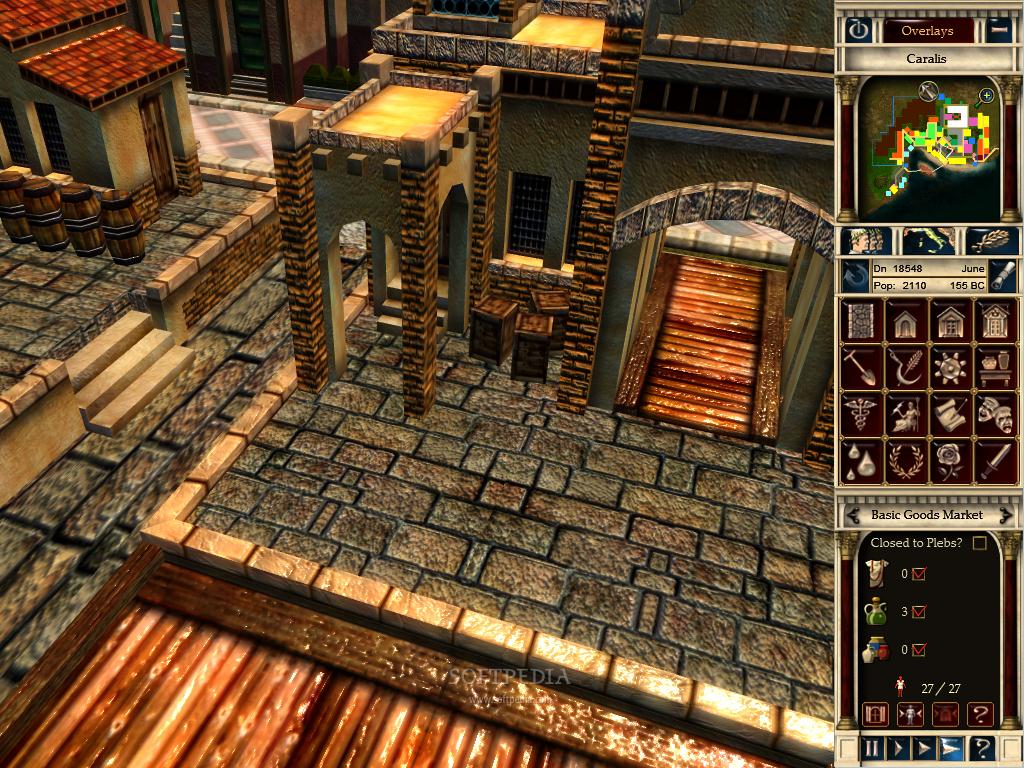
Beyond the frontiers, he secured the Empire with a buffer region of client states and made peace with the Parthian Empire through diplomacy. A similar ambiguity is seen in his chosen names, the implied rejection of monarchical titles whereby he called himself Princeps Civitatis (First Citizen) juxtaposed with his adoption of the ancient title Augustus.Īugustus dramatically enlarged the Empire, annexing Egypt, Dalmatia, Pannonia, Noricum and Raetia, expanding possessions in Africa, and completing the conquest of Hispania, but suffered a major setback in Germania.
CAESAR IV ANY GOOD FREE
The Triumvirate was eventually torn apart by the competing ambitions of its members Lepidus was exiled in 36 BC and Antony was defeated by Octavian at the Battle of Actium in 31 BC.Īfter the demise of the Second Triumvirate, Augustus restored the outward façade of the free Republic, with governmental power vested in the Roman Senate, the executive magistrates and the legislative assemblies, yet maintained autocratic authority by having the Senate grant him lifetime tenure as commander-in-chief, tribune and censor. Following their victory at the Battle of Philippi (42 BC), the Triumvirate divided the Roman Republic among themselves and ruled as de facto dictators. He, Mark Antony and Marcus Lepidus formed the Second Triumvirate to defeat the assassins of Caesar. His maternal great-uncle Julius Caesar was assassinated in 44 BC and Octavius was named in Caesar's will as his adopted son and heir as a result, he inherited Caesar's name, estate, and the loyalty of his legions. Originally named Gaius Octavius, he was born into an old and wealthy equestrian branch of the plebeian gens Octavia. The Roman world was largely free from large-scale conflict for more than two centuries, despite continuous wars of imperial expansion on the Empire's frontiers and the year-long civil war known as the " Year of the Four Emperors" over the imperial succession. The reign of Augustus initiated an era of relative peace known as the Pax Romana. His status as the founder of the Roman Principate (the first phase of the Roman Empire) has consolidated a legacy as one of the greatest leaders in human history. There is also a level editor available for the game.Caesar Augustus (23 September 63 BC – 19 August AD 14), also known as Octavian, was the first Roman emperor, reigning from 27 BC until his death in AD 14. In all these scenarios the rank that is used is " Quaestor". The last is only available for people who pre-ordered the game directly from Tilted Mill Entertainment. There are still five more scenarios that are sandboxes: Amida, Corduba, Cyrene, Djedu and Roma. The Kingdom part is a tutorial, while the Republic and Empire parts make up the campaign, where one can choose between peaceful and military assignments. The game is divided in three parts, named after the three traditional eras of Ancient Rome: " Kingdom", " Republic" and " Empire". To this end, Sierra Games did detailed research into Roman lifestyles using secondary sources and primary sources.

In an attempt at historical realism, the game tries to stay as close to proper Roman lifestyles as possible. In addition, buildings and roads may be placed at 45 degree angles to the playing grid, as well as aligned with the grid, allowing game players more options in creating efficient and visually appealing city layouts. This means more realistic landscapes and city views, and the ability for players to better see and use game building space. In a departure from older versions in the series, Caesar IV is equipped with variable, realistic 3D instead of fixed, isometric 3D.


 0 kommentar(er)
0 kommentar(er)
